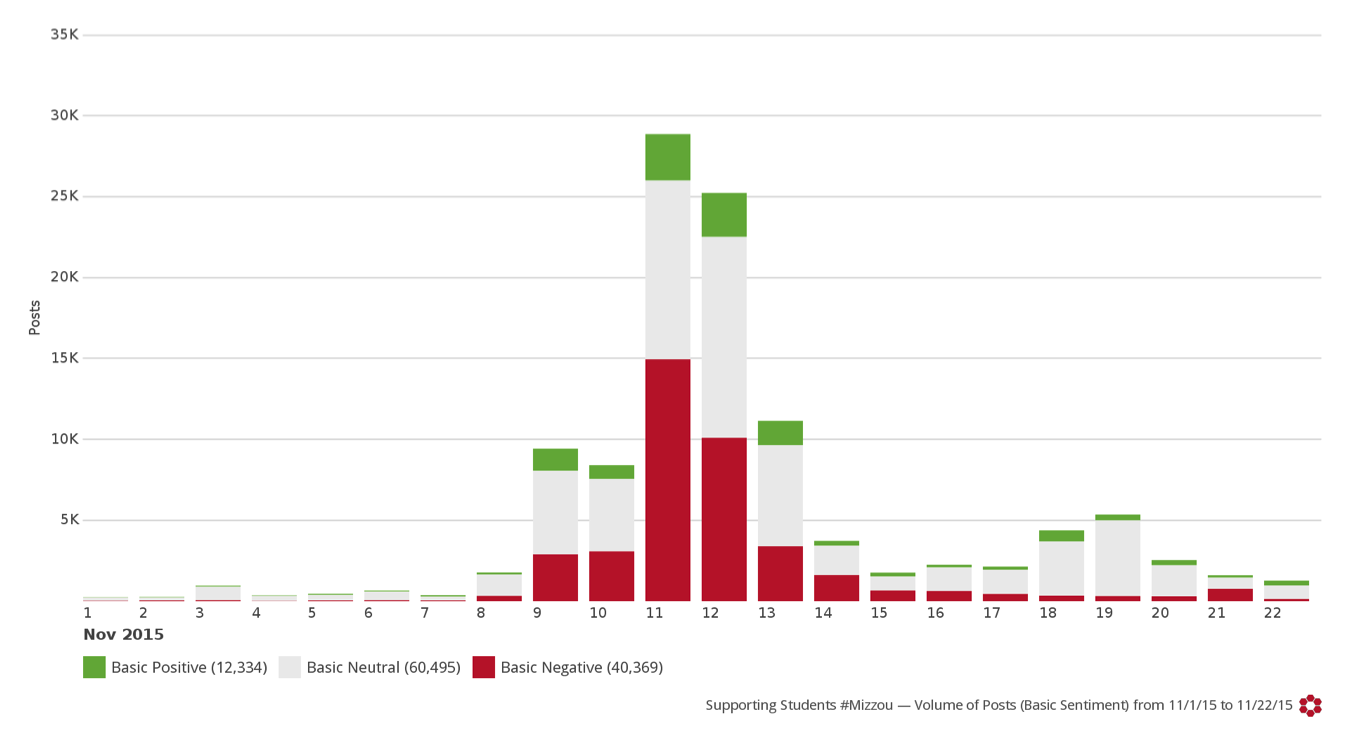 With teenagers the most active demographic on social networks, social media listening is now just about imperative for colleges and universities. To better serve their students, educational institutions need to know what their target audience thinks and says about their college choices and experiences.
With teenagers the most active demographic on social networks, social media listening is now just about imperative for colleges and universities. To better serve their students, educational institutions need to know what their target audience thinks and says about their college choices and experiences.
Higher education institutions can support at least three key organizational goals through a program of monitoring social media conversations for student opinion and sentiment.
Increase Enrollment
Students typically research prospective schools online before applying and committing to attend. They comment about schools and ask others questions on social media. Social media listening enables schools to understand what students are seeking in schools and to tailor their messages to students interested in enrolling.
In addition to monitoring Twitter and Facebook, colleges can track student forums, review sites and other online sources. The information gathered from these channels can help colleges identify major concerns among students — about colleges in general or about a particular university.
In addition to gathering data, social media enables schools to engage with potential students and build relationships during their decision-making process.
Universitat Politècnica de València (UPV), a technical university in Spain, uses social media listening to increase the number of followers and its student engagement rate with the goal of increasing enrolment.
Daniel Robles, UPV’s digital communication specialist, offers this advice to other schools:
- Identify and prioritize high-volume periods and adjust staff levels accordingly.
- Commit to an ongoing social strategy that includes posting news, updates and invitations to events.
- Respond promptly to students who require information or assistance.
- In addition to monitoring the university’s name and social media handles, create multiple search streams in your monitoring dashboard to track misspellings of the school, names of faculty members, sports mascot and other relevant keywords.
Improve Student Life
Students frequently comment on social media about what they eat, events they attend, and the courses they study. By monitoring conversations, universities can answer student questions and learn how to improve their student services. They can improve safety on campuses, increase attendance at athletic events, and make other enhancements to services and facilities.
Clemson University was a pioneer in a social media listening. Its social media listening center established in 2012 analyzes sentiment, trends and other data to improve student life.
Manage Reputation
Social listening tools track both positive and negative mentions about the institution. The real-time data allows universities to react quickly to news, rumors and conversations.
Measuring the volume and sentiment of conversation is crucial for devising when and how to handle sensitive topics. By analyzing what social media users are discussing, schools and decide how to respond with official statements and policy changes. Filters that screen posts by categories like gender, location, and author interest allow universities to craft messages to specific audiences.

Social media monitoring analyzes the sentiment of social media conversation surrounding the resignation of resignation of University of Missouri President, Tim Wolfe. Image credit: Crimson Hexagon
Social listening revealed that social media comments expanded beyond the Missouri controversy into discrimination at colleges in general, with the appearance of hashtags such as #blackoncampus and #blacklivesmatter, writes Morgan Johnstonbaugh, a content marketing associate at Crimson Hexagon.
All colleges must be attuned to all student issues and concerns – not just racial discrimination. A well-conceived program of social media listening is an effective way for administrators to gain insights about what’s bothering the student body and an early warning system for controversies that may be developing on campus.
In most cases, a social media monitoring service can provide more comprehensive social media coverage at lower cost than using college personnel to perform the monitoring. An outsourced service can also adapt readily to changing client needs and an expanding social media environment.
One caution: Social media listening is useless unless college administrators carefully review the social media data and use it to improve services for students. Students need to see concrete benefits to them of their college monitoring social media,
Bottom Line: With most college and high school students active on social media, it’s now essential for colleges and universities to employ a social media listening service. Social media monitoring is a vital tool for recruiting students, improving student life, responding to PR crisis and managing a school’s reputation.
William J. Comcowich founded and served as CEO of CyberAlert LLC, the predecessor of Glean.info. He is currently serving as Interim CEO and member of the Board of Directors. Glean.info provides customized media monitoring, media measurement and analytics solutions across all types of traditional and social media.




